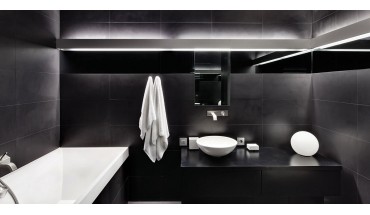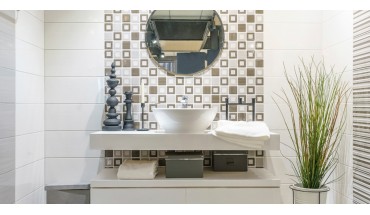
Growth in 2017 and an ever larger Cersaie: Palazzo Re Enzo hosts the international press conference and presentation of the Journalism and Distributor Awards
One of the most important events to be held on the first day of the thirty-sixth edition of Cersaie was the international press conference, hosted in Palazzo Re Enzo in the centre of Bologna with the participation of almost 200 journalists from all over the world. During the event, Confindustria Ceramica’s vice chairman Emilio Mussini presented the industry’s figures, beginning with the growth in value of Italian production in 2017. “After six years of continuous growth, our total turnover exceeded 5.5 billion euros,” he said. “This marked a return to pre-crisis levels in terms of value.” Output volumes also saw a recovery: “We reached sales of 422 million square metres after five years of slow expansion. These volumes are still 80 million sq.m short of pre-crisis levels, the volume lost in Italy.” Growth is driven primarily by the EU market, which accounts for half of total Italian sales and saw 4% sales growth compared to the stagnation seen in the rest of the world.
The results for 2018 are highly dependent on the international situation. “This year’s forecasts are strongly influenced by the debate on tariffs and the rise in interest rates in the USA, both of which are factors that do not inspire optimism,” warned Mussini. The sector remains robust, largely due to the process of manufacturing internationalisation which accounts for 14% of total turnover. Italy has 160 companies employing almost 23,000 people, with an output of 510 million square metres and total revenues of 6.4 billion euros, 73% of which are generated by exports. The country remains the world leader in international trade in terms of value with a share of 32% ahead of China (25%) and Spain (16%). The Italian tile industry is also stepping up its investments: “Last year we invested 514 million euros, 29% up on the previous year,” noted Mussini. “In the space of five years our industry has invested 1.8 billion euros in technology, including 1.3 billion euros in the last three years.” The surge in 2017 was largely attributable to the government’s Industry 4.0 tax incentive programme.















